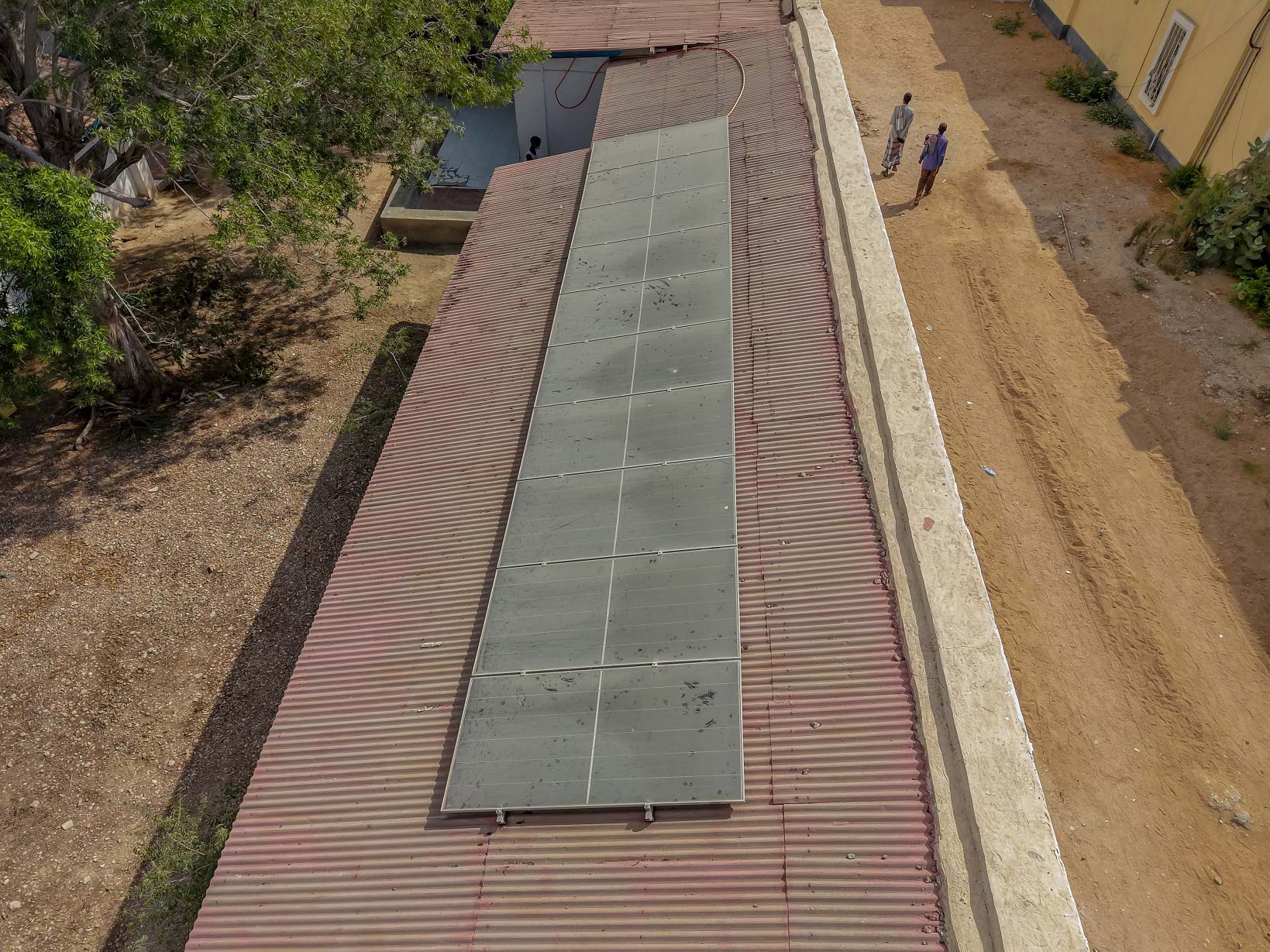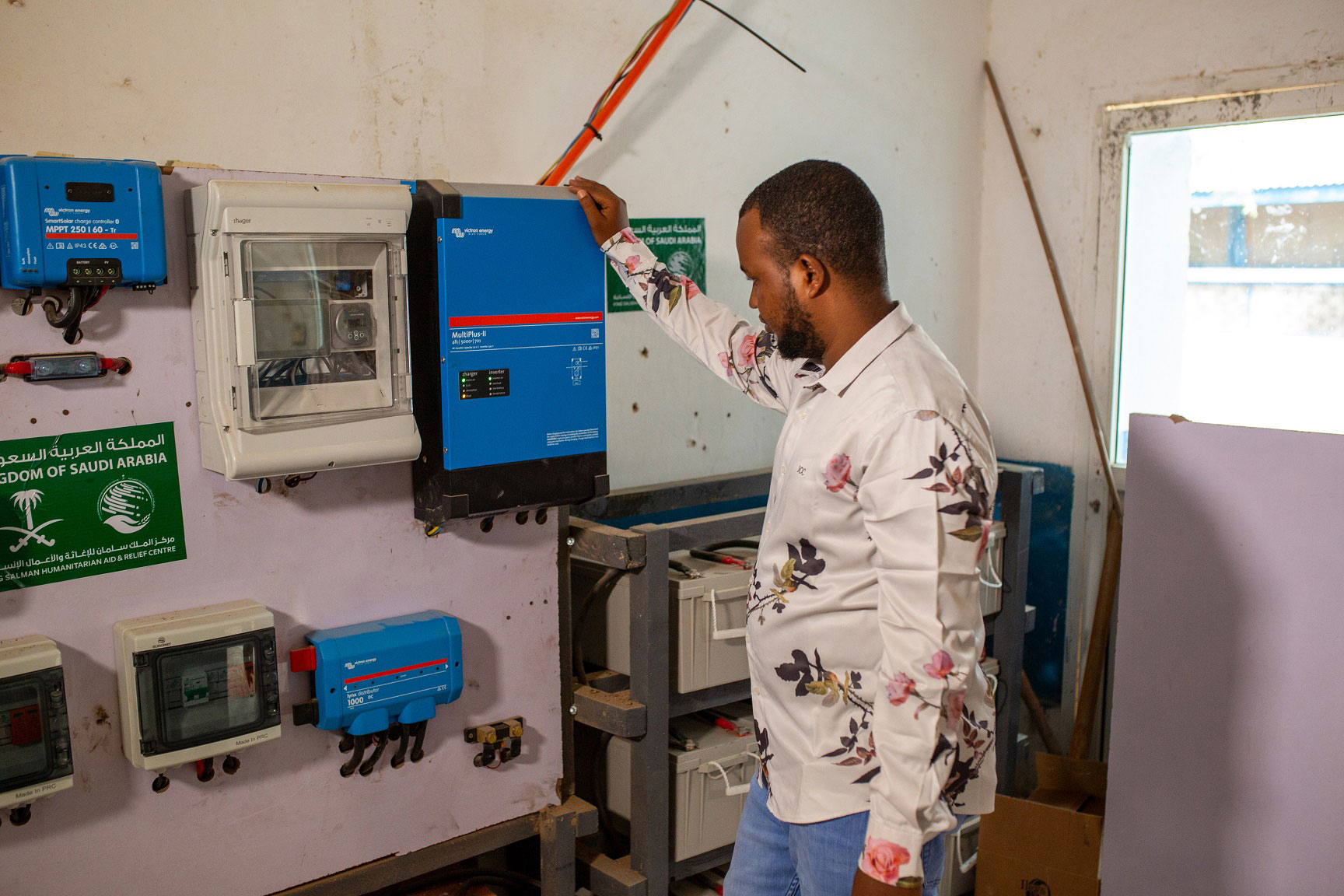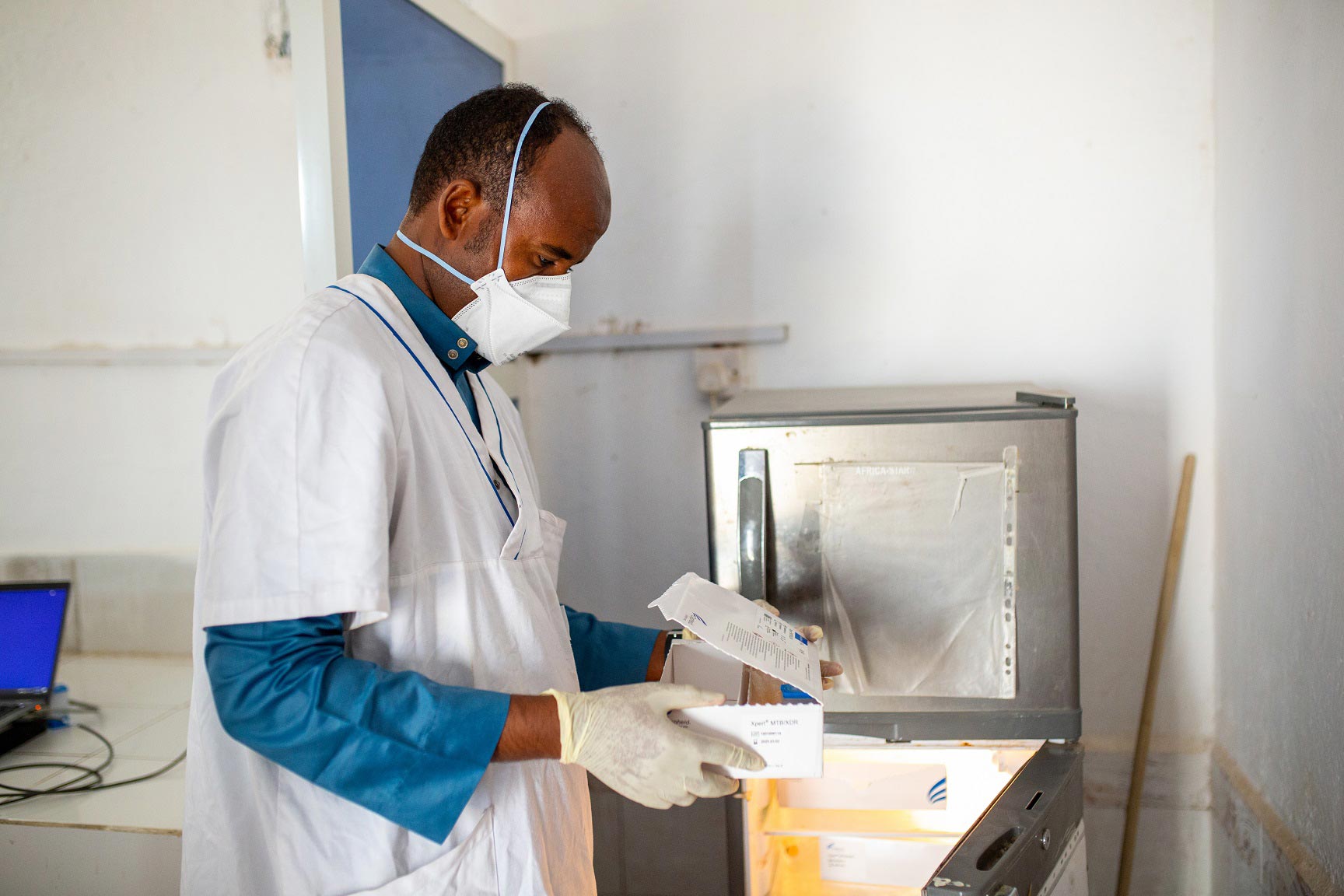 12 May 2025, Mogadishu, Somalia – As the world marks Immunization Week 2025, a powerful story of innovation and impact is emerging from Somalia’s coastal city of Berbera. Once affected by frequent power outages that jeopardized the delivery of essential health services, Berbera’s hospitals are now running around the clock thanks to newly installed solar battery systems supported by the King Salman Humanitarian Aid and Relief Centre (KSrelief) and WHO Somalia.
12 May 2025, Mogadishu, Somalia – As the world marks Immunization Week 2025, a powerful story of innovation and impact is emerging from Somalia’s coastal city of Berbera. Once affected by frequent power outages that jeopardized the delivery of essential health services, Berbera’s hospitals are now running around the clock thanks to newly installed solar battery systems supported by the King Salman Humanitarian Aid and Relief Centre (KSrelief) and WHO Somalia.
The shift to solar energy is doing more than keeping the lights on; it is energizing the city’s health system by enabling uninterrupted laboratory services, safeguarding lifesaving vaccines, and strengthening the fight against measles and polio, two of Somalia’s most persistent public health threats.
“The biggest challenges we used to face were related to electricity,” says Mursal Ahmed Jama, Adminstration of Berbera Regional Hospital. “But now, since solar power is more sustainable, providing 24-hour power with sunlight during the day and batteries working at night, these challenges have been addressed.”
 Power disruptions once hindered lab tests, delayed diagnoses, and threatened the integrity of vaccines stored in hospital refrigerators. Today, solar power ensures that machines, refrigerators, and air conditioning systems run continuously, supporting accurate diagnostics and consistent immunization services.
Power disruptions once hindered lab tests, delayed diagnoses, and threatened the integrity of vaccines stored in hospital refrigerators. Today, solar power ensures that machines, refrigerators, and air conditioning systems run continuously, supporting accurate diagnostics and consistent immunization services.
“In Berbera, it was very possible for the power to go off while you were in the middle of work,” explains Hussein Yusuf Hussein, lead medical lab technologist. “But now, the refrigerators are always running, the AC is consistently working, and the machines operate effectively. Solar power has brought significant positive change.”
The upgrades have had a direct impact on routine immunization and the broader surveillance and response system for priority diseases such as measles and polio, key focuses during Immunization Week 2025.
 “This solar system is available 24/7, making the diagnosing process easier than before by reducing the waiting time at reception,” adds Mursal Ahmed Jama. “That means children and families can be served more efficiently.”
“This solar system is available 24/7, making the diagnosing process easier than before by reducing the waiting time at reception,” adds Mursal Ahmed Jama. “That means children and families can be served more efficiently.”
The solar initiative is part of a wider effort by KSrelief and WHO Somalia to strengthen health systems across the country, from diagnostics to vaccination access.
“The King Salman project was conceived for the whole of Somalia,” says Dr. Ireneaus Sindani, head of WHO’s Hargeisa Liaison Office. “Strengthening the health system is key not only for measles and polio but for diagnosing and treating all patients. Strong laboratories and human capacity are the foundation of universal health coverage.”
“Without this equipment, outbreak response would have been more difficult,” he adds. “We are thankful to KSrelief for giving us the resources to establish this.”
As Immunization Week 2025 shines a spotlight on the importance of vaccines and strong health systems, Berbera’s story is a testament to how sustainable energy can power not just hospitals but also hope, prevention, and progress.
For more information, please contact:
Khadar Hared, Communication Officer, WHO Somalia
Tel: +252619800011
Email: This e-mail address is being protected from spambots. You need JavaScript enabled to view it



